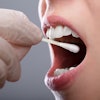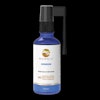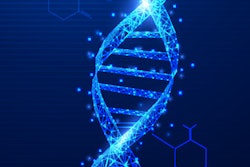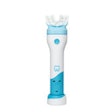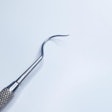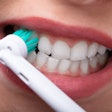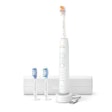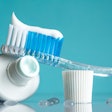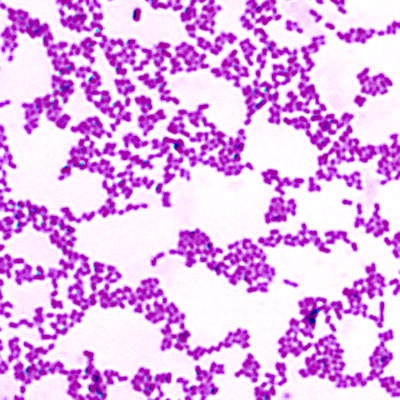
Previous studies have found that caries-free individuals have higher arginine levels in their saliva than those with caries and that using toothpaste containing the amino acid improves oral bacterial composition. Now new research suggests that arginine may play an important role in keeping oral biofilms healthy and preventing caries.
Researchers conducted multiple in vitro experiments to determine the effect of L-arginine on the growth and biofilm formation of oral bacteria, and they found that it could reduce the biomass of various polymicrobial dental biofilms and potentially promote oral health.
"Arginine may serve as an important agent keeping oral biofilms healthy thus prevent[ing] dental caries," the researchers wrote (Archives of Oral Biology, October 2017, Vol. 82, pp. 256-262).
The lead authors were Xuelian Huang, PhD, DDS, and Keke Zhang, PhD. When this study was conducted, Dr. Huang was a joint doctoral student at the Academic Centre for Dentistry Amsterdam in the Netherlands; a postdoctoral fellow at West China College of Stomatology in Chengdu, China; and dental resident and research fellow at Eastman Institute for Oral Health at the University of Rochester in New York. Zhang was a doctoral student at West China College of Stomatology and a assistant research fellow at Wenzhou Medical University in Wenzhou, China.
Reduce your biomass
An imbalance in the physiological equilibrium between tooth minerals and oral microbial biofilms is responsible for dental caries, according to the study authors. Numerous studies attest to the anticariogenic effects of fluoride, but it is not a total cure and acts on hard tissues rather than oral bacteria, they noted.
“Arginine may serve as an important agent keeping oral biofilms healthy thus prevent[ing] dental caries.”
Arginine is secreted by salivary glands. Studies have found that individuals without caries have significantly higher free arginine levels in their saliva and higher activity levels of the arginine deiminase system in their plaque and saliva than those with caries, the authors wrote. The arginine deiminase system catabolizes arginine to release ornithine, ammonia, and CO2 and produce adenosine triphosphate, and it performs physiological functions, including contributing to pH homeostasis.
Additionally, studies have shown a relationship between alkali formation from arginine and pH homeostasis, as well as with caries progression. Arginine has also been found to influence coaggregation between bacteria and biofilm formation and viability, according to various studies.
Previous studies the authors conducted on arginine metabolism have found that arginine could affect dental biofilm biomass. To continue exploring related issues, the current study examines these effects in detail and the underlying mechanism.
The investigators developed polymicrobial dental biofilms using parafilm-stimulated whole saliva from a caries-free individual and three individuals with caries that was collected for previous studies. They defined caries-free as having no evidence of present caries experience or decayed, missing, or filled teeth. Caries-active individuals had at least one active, cavitated, and unrestored caries lesion.
The researchers examined the effects of 0.8% arginine on these polymicrobial dental biofilms and found that it significantly reduced their biomass, with inhibitions of 56.6% at 24 hours, 51.3% at 48 hours, and 74.1% at 72 hours.
They confirmed the effect of arginine on polymicrobial biofilms grown with or without 1.6% arginine, finding that inhibition was higher in biofilms from caries-free subjects (68.0% to 85.4%) than from caries-active individuals (42.7% to 75.5%). Additionally, confocal laser scanning microscope images of 48-hour polymicrobial dental biofilms grown with 1.6% arginine showed significantly thinner biofilms (p < 0.001) and lower exopolysaccharide/bacteria ratios (p = 0.004).
They also examined the growth characteristics and biofilm formation of four types of oral bacteria: Streptococcus mutans and S. sobrinus, two of the predominant acidogenic and aciduric organisms regarded as the prime pathogens in caries; and S. sangunis and S. gordonii, which are associated with oral health and are able to use arginine to generate ammonia via the arginine deiminase system.
The researchers monitored the planktonic growth of these types of bacteria in the laboratory in brain heart infusion medium supplemented with varying concentrations of arginine (0 to 1.6%) and concluded that it had little effect on all of them, although it did inhibit only biofilm formation of S. mutans.
However, in further laboratory experiments, they found that the biomass of S. mutans biofilms were significantly decreased (p < 0.001) when incubated with 1.6% arginine. Subsequent studies also found that 0.4% arginine significantly reduced the biomass of S. mutans biofilms (p = 0.02), and 0.2% arginine had a significant inhibitory effect (p = 0.008). Confocal laser scanning microscope images confirmed that biofilms grown with arginine had lower average thickness than those grown without it (p < 0.001) and lower exopolysacchararide/bacteria ratios than other biofilms (p = 0.004).
"The findings of the present study demonstrated that arginine could reduce the biomass of polymicrobial dental biofilms with different biofilm ages and derived from both caries-free and caries-active subjects," the authors wrote. "Arginine had little effect on the planktonic growth of S. mutans, S. sobrinus, S. sangunis, and S. gordonii, whereas 0.2% arginine significantly reduced the biomass of S. mutans biofilms, showing that S. mutans might be one of the bacteria responsible for the observed arginine effects."
Laboratory doesn't imitate life exactly
The authors noted a limitation of their study was that the models they used did not simulate actual in vivo dental biofilm in humans. Monospecies biofilms are fairly rare, but the complexity of dental biofilms makes the study of their mechanism better conducted on monospecies, they wrote.
In their study, arginine demonstrated effects on biofilms of various ages and from those derived from individuals with differing caries status, which indicates that it may have a common effect, the authors noted. Additionally, arginine has been found in previous studies to have an antiviral effect against enveloped viruses, such as the herpes simplex and influenza viruses, the y wrote.
"These findings, together with the effect in oral ecology, pH homeostasis, and destabilizing biofilm from our results, indicated arginine could be a promising agent for promoting oral health," they concluded.
